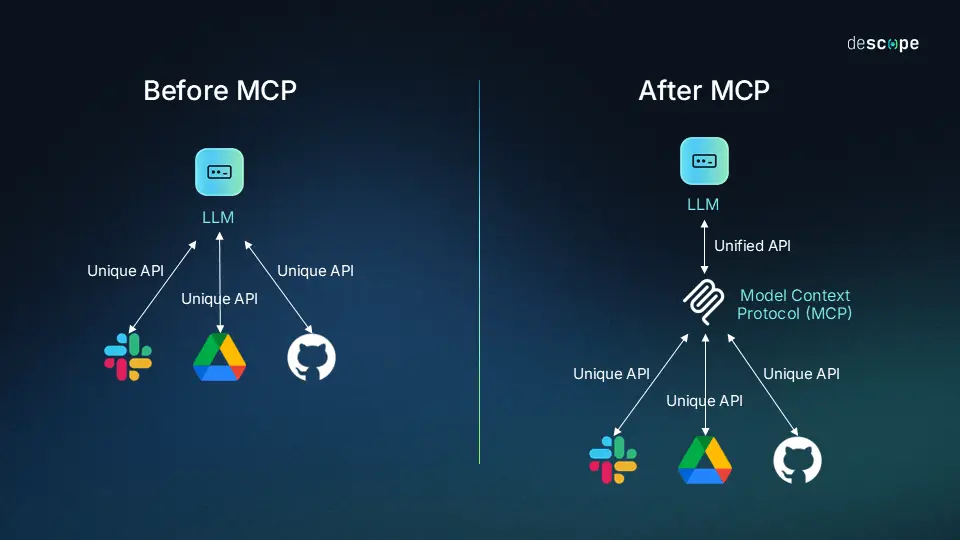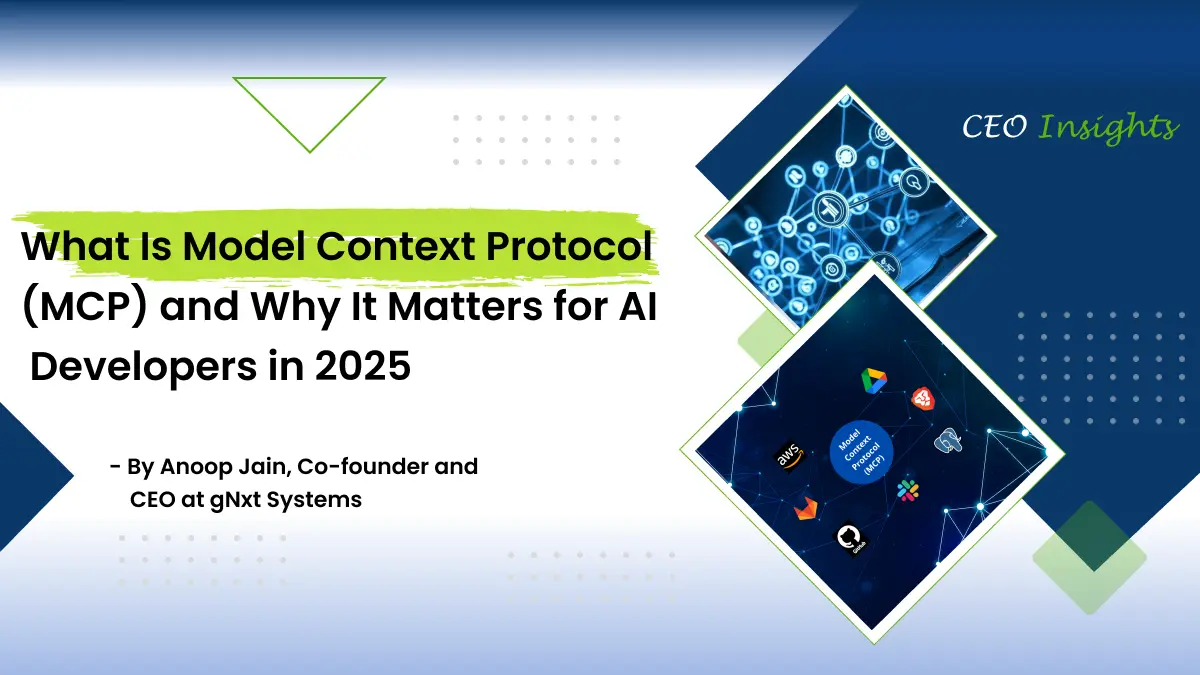- June 12, 2025
- by Anoop Jain
What Is Model Context Protocol (MCP) and Why It Matters for AI Developers in 2025
In 2025, artificial intelligence is no longer just about building powerful models; it’s about enabling these models to work together seamlessly in context-aware environments. The Model Context Protocol (MCP) has emerged as a pivotal framework for AI developers, facilitating scalable, secure, and coherent interactions between agents, tools, models, and memory. But what exactly is MCP, and why is it generating buzz across the AI ecosystem?
Understanding Model Context Protocol (MCP)

Model Context Protocol (MCP) is a communication and interaction protocol developed to enable interoperability among AI agents, foundation models, tools, and memory systems. Introduced by OpenAI, MCP provides a standardized way for AI models to operate within dynamic, multi-agent systems by sharing context in a structured, extensible format.
MCP is designed to answer a core challenge in AI development: how can multiple agents, each with specialized skills or access to different tools, collaborate effectively while maintaining shared memory and coherent context?
Why MCP Matters in 2025
1. Enables Multi-Agent Collaboration
With the rise of multi-agent AI systems like OpenAI’s “Teamwork Mode,” agents must coordinate tasks, share memory, and operate in tandem. MCP enables this by ensuring every agent understands and maintains contextual continuity.
“MCP allows agents with different capabilities to seamlessly collaborate in mission-critical workflows. This is key to the next wave of intelligent automation,” says Mr. Nitin Parmar, CTO at gNxt Systems.
2. Boosts AI Tool Interoperability
AI developers often integrate third-party tools such as code interpreters, vector databases, web search, or RPA bots. MCP provides a standard format for these tools to plug into a shared AI system.
3. Powers Context-Aware Memory
Through MCP, developers can give agents persistent, retrievable memory that persists across tasks and sessions. This contextual memory enhances user personalization, historical understanding, and long-term learning.
4. Supports Modularity and Extensibility
MCP is modular by design, allowing AI ecosystems to grow by adding or upgrading individual components without disrupting the whole. This is crucial for enterprise AI adoption, where systems must evolve quickly without massive reengineering.
5. Security and Access Control
MCP includes mechanisms for secure, permissioned interactions, ensuring that sensitive tools or information are only accessed by authorized agents within the system. This is especially important in finance, healthcare, and government applications.
Real-World Applications in 2025
- Enterprise RPA Systems: Companies like gNxt Systems are integrating MCP into their robotic process automation (RPA) platforms, enabling bots to work collaboratively and respond intelligently to complex workflows.
- Healthcare AI Assistants: Multi-agent assistants powered by MCP can coordinate medical history retrieval, real-time diagnostics, and patient communication.
- Autonomous Research Agents: In tech R&D, MCP-driven agents now collaborate to explore codebases, conduct literature reviews, and generate project proposals.
Industry Momentum & Ecosystem Growth

MCP has been rapidly adopted across the AI landscape:
- OpenAI uses it as a backbone for its multi-agent framework.
- Anthropic and Google DeepMind are reportedly working on MCP-compatible tooling.
- Startups in healthcare, law, and logistics are building modular agent stacks using MCP.
According to a 2025 report by AI Infrastructure Weekly, over 40% of new enterprise AI deployments are now MCP-compliant, highlighting its growing importance.
Final Thoughts
Model Context Protocol (MCP) is not just another standard; it’s the foundation for building cooperative, context-rich, and memory-enabled AI ecosystems. For AI developers in 2025, understanding and adopting MCP means unlocking the potential to build scalable and intelligent agent systems that go far beyond traditional models.
As gNxt Systems CEO Mr. Anoop Jain puts it, “MCP represents the shift from monolithic AI to modular intelligence — it’s a key enabler for enterprise-grade AI that thinks, remembers, and collaborates.”
Read this blog by gNxt Systems. It might interest you:
The Future is Agentic: Preparing Enterprises for the Next Wave of AI Evolution
About Author

CEO at gNxt Systems
with 25+ years of expertise, Mr. Anoop Jain delivers complex projects, driving innovation through IT strategies and inspiring teams to achieve milestones in a competitive, technology-driven landscape.


